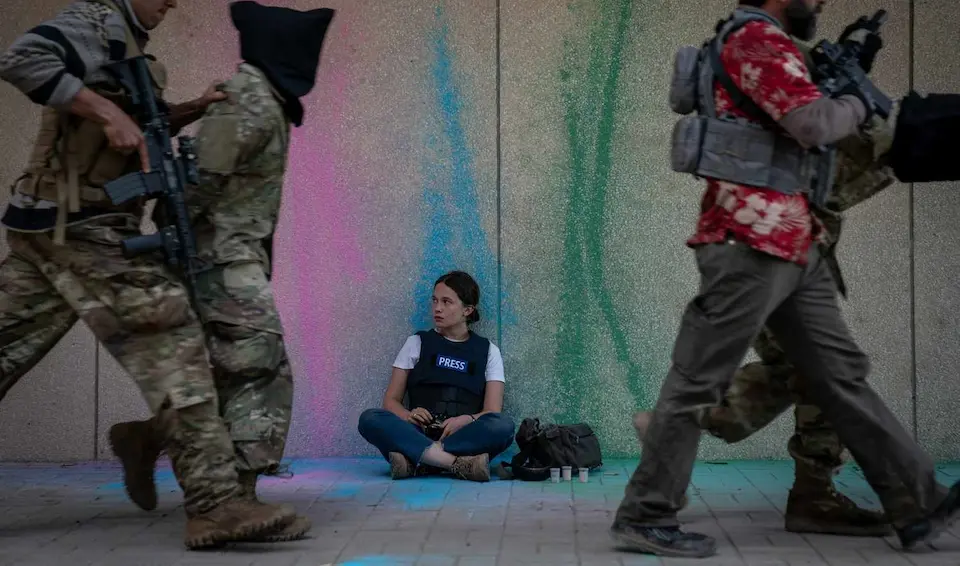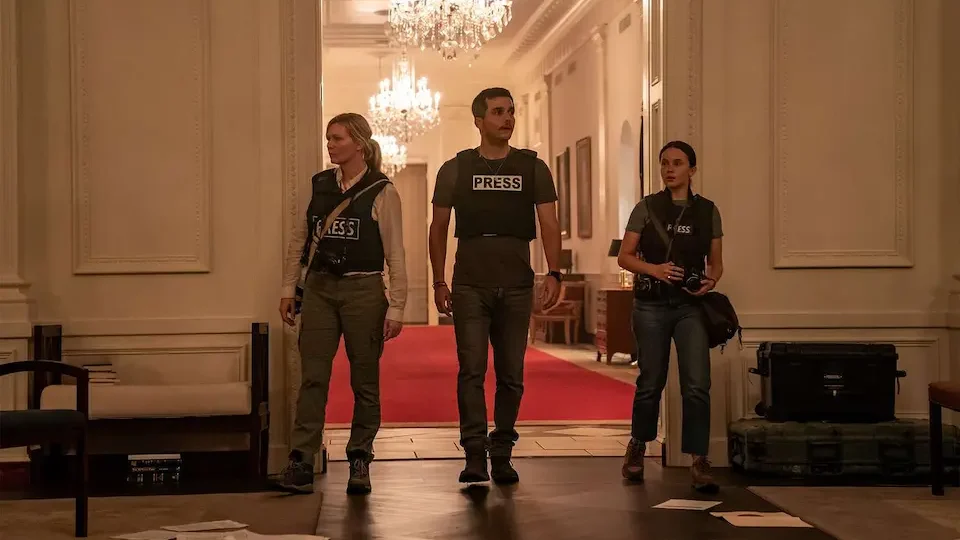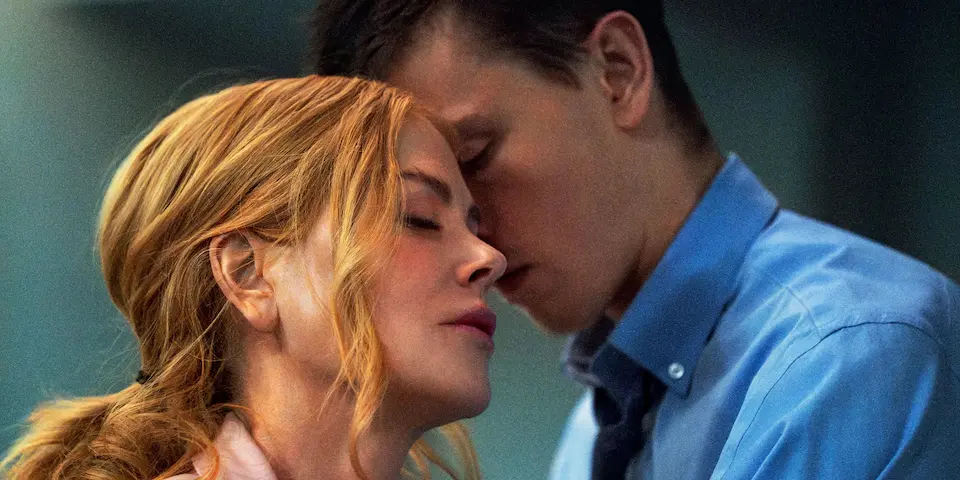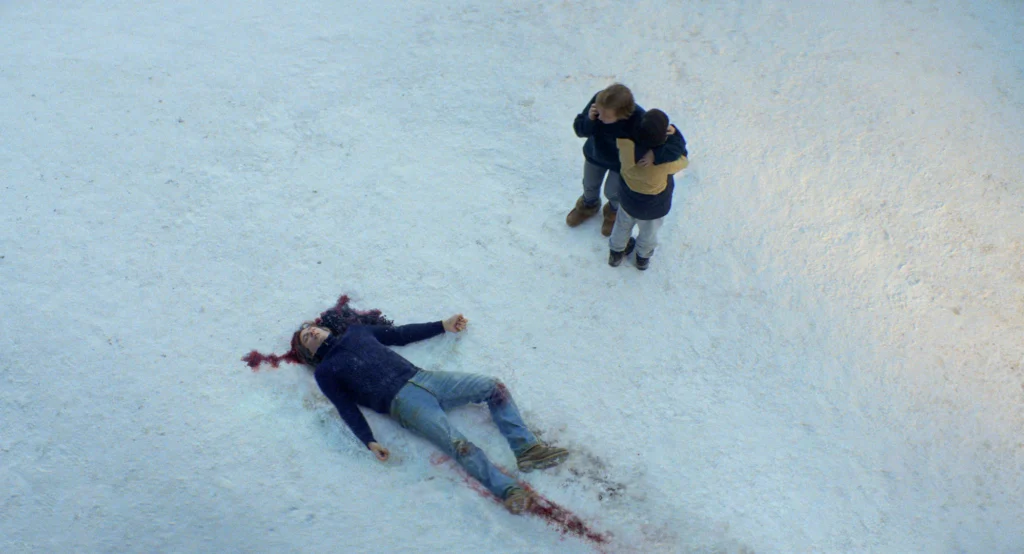“Civil War”: A24’s Big Bet for 2024
Released in April of this year, Civil War generated a conversation about the increasing social polarization and the consequences it can have in the future.

Summary
In the near future, when a civil war is wreaking havoc on the United States, a group of journalists and photographers set off on a dangerous journey across the country with an ambitious goal: getting to Washington, DC, to interview the president before the secessionist movements get to him. The trip confronts the small team with all the horrors of the war, which they document as they go.
The U.S. Divided
Civil War introduces us to a conflict between the federal government, led by an authoritarian president, and three different secessionist movements: the Florida Alliance, the New People’s Army, and the Western Forces, who are about to reach Washington.
Even though the story is set in what seems to be the current day, writer and director Alex Garland was careful not to suggest a connection to the real political parties when portraying the opposing groups. The fact that California and Texas are allies in the film let me know that he didn’t want that to be part of the discussion.
The film gives no context as to how the situation escalated to that level or the motives behind the conflict. Instead, it goes straight to the characters’ mission, which is established within the first few minutes.

The lack of development at that point did not bother me, for I feel the focus of the story was meant to be on the turbulent climate in itself and not the reasons behind it. Because at the end of the day, that is what the war is: people killing people. People losing their humanity and becoming increasingly desensitized to violence.
If there is something that Civil War does really well, it is to immerse the audience in that climate and make us participate in the characters’ journey, feeling the fear, anguish, and rage they are experiencing. You’re not just watching them; you are there with them. There are scenes so intense that they keep you at the edge of your seat.
The ending, just like the rest of the film, is vague. The death of the president marks the end of the mission for our protagonists, but not the end of the war.
The Work of the Journalist
The film goes into the traumatic experiences journalists and photographers go through for the sake of getting the story or taking the picture at the right moment. That sometimes means silently witnessing atrocities without interfering.
This is shown mostly through Lee’s character, who experiences flashbacks of past events in war zones and has a more pessimistic attitude towards the situation. This makes her hard on Jessie sometimes. Lee is aware the young girl admires her work, looks up to her, and in some way wants to protect her from what she has experienced herself.

The dynamic of the whole group is interesting because the four characters, even though they are in the same line of work, are at very different moments in their careers. We are not given many details about their background, but it is possible to feel attached to them. The performances of the cast make a great contribution to the realistic atmosphere.
But as much as Civil War wants to portray journalists as heroes who sacrifice themselves to help the public know the truth, we have to admit that is not what journalism in general is currently up to. That is the only thing that prevented me from connecting with the story completely.
“We record, so other people ask”
Lee says, at some point during the movie, that the journalist’s job is just to present the facts, and let the people decide what to do with them. Except for very punctual cases, most journalists these days are far from adhering to that rule.
Modern journalists want to tell you what to think, placing their opinions over the facts. They seem to believe the profession gives them a moral high ground to preach to the average person. And hide, or “embellish” the things that are inconvenient, of course.

The events of these past years have made me realize how unreliable most official and renown sources are, and how shamelessly they can lie to your face for the sake of getting certain ideas and perspectives out there. Sadly, this is not merely an American problem but a much larger issue.
To see a smaller example, we can talk about film and TV critics. There are critics labeling productions that are objectively bad as “masterpieces” as long as they promote the approved message. They even go so far as to blame the audience for not supporting projects.
In consequence, I have personally developed a certain animosity towards them. I’m sorry for the good ones left, but journalists as a whole are not heroes.
Box Office Results
Civil War obtained $68.757.539 at the domestic box office during its eleven weeks in theaters, staying at the top of the chart for a while. On the international market, it went over $37.000.000, reaching a worldwide result of $106.000.000.
With a budget of $50.000.000, it is the most expensive film ever produced by independent company A24, and its second highest-grossing production. It is to be expected that the relative success and mostly good criticism of Civil War will open the door for A24 to produce bigger projects in the future.
For the time being, it is certain that Civil War is one of the most relevant releases of 2024 so far.



